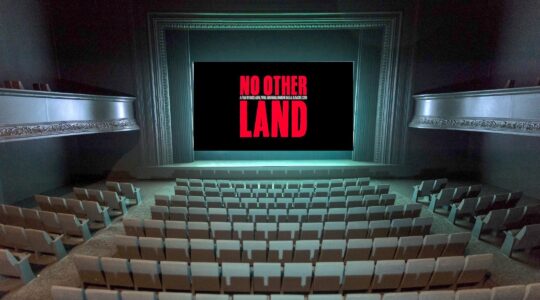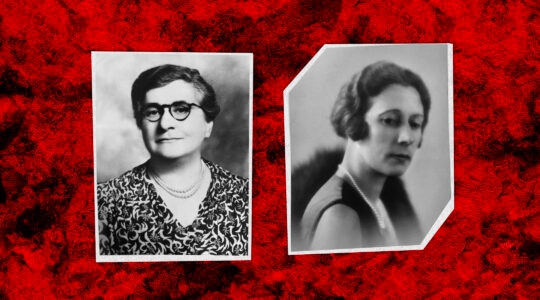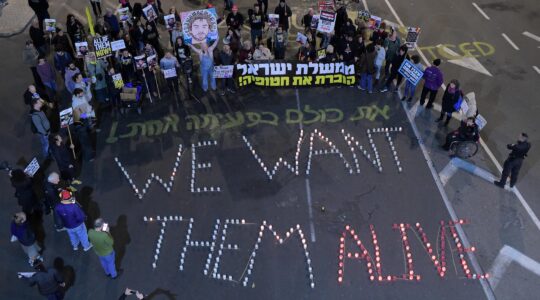I read with interest about the formation of PORAT, an organization dedicated to making the Orthodox community more modern and inclusive (“Giving Voice To Inclusive Orthodoxy,” Editor’s column, March 11).
As described in Gary Rosenblatt’s column, the organizers of PORAT believe that existing established Orthodox institutions are not sufficiently inclusive, and that a new organization is needed to fill this role. Although this new organization may indeed be useful, it seems to me that the Jewish community in general, and the Orthodox community in particular, is saturated with organizations. While every new organization promises to fill a void, they often, even if unintentionally, contribute to the fragmentation of the community. Also, in praising the formation of PORAT, Rosenblatt’s column seems to accept as a given that the Modern Orthodox community is, by nature, exclusionary.
As a congregational rabbi and current president of the Rabbinical Council of America (RCA), I believe that assertion — that the Modern Orthodox community is not inclusive — is false. The RCA is an organization of over 1,000 Modern Orthodox rabbis, many of whom lead synagogues across the United States. These rabbis and others have dedicated their lives to reaching out to Jews of all backgrounds and to finding ways to include them in the Modern Orthodox community. We seek to include all Jews in our communal institutions, regardless of their level of affiliation, gender, sexual orientation or theological leanings.
The vast majority of rabbis in the RCA, along with the institutions they lead, want every Jew, without exception, to feel that, as individuals, they have a home in our synagogues and educational institutions. The overwhelming feeling in our organization is to explore as many options as possible to make every Jew feel comfortable and not judged in our synagogues and schools. Having standards on an institutional level does not mitigate the efforts made to explain our positions to individuals and to empathize with them when their particular desires could not be met.
Inclusion doesn’t mean giving in to unprecedented changes. It does require sensitivity and concern for a fellow Jew. And I believe that most Modern Orthodox leaders on the street and in the pews share these values and are respected by their congregations that demand such respect towards their fellow Jews. Of course, we all could do better, but the goal and practice of inclusion is not the aberration in the Modern Orthodox community. The pulpit rabbis continue to play central roles in this process and we don’t see our positions superseded by roshei yeshiva, who we proudly and prudently turn to for advice and guidance when appropriate. And despite the year or two that many of our teens spend in Israel, most of them continue to seek out guidance from their parents and synagogue rabbis.
However, if inclusion implies the acceptance of institutional innovations that run counter to Jewish tradition and are not implemented under the guidance and guidelines of Torah scholars and experts in all areas of Jewish law, then I would argue that by resisting these innovations, we are preserving the norms of the community, which is what we are licensed to do. Conversely, those who advocate for such unprecedented practices have, perhaps unintentionally, divided the community. Orthodoxy does not first establish the facts on the ground and then expect the halachic system to fall into line with those facts. Rosenblatt properly acknowledged this in his column when arguing that unilateral decisions by lone figures have deepened the split within Modern Orthodoxy. This point is often overlooked.
To a large extent, the Modern Orthodox community continues to flourish because, and not despite, of its fidelity to tradition. Strong Modern Orthodox institutions affiliated with the RCA, and to large extent led by RCA members, bring unprecedented Torah learning to women and men, have a great impact on thousands of teenagers in public schools and on college campuses and bring unaffiliated Jews into an open and tolerant yet law abiding Orthodoxy. With inclusion as the goal, the results have been phenomenal. Unfortunately, like every other community, we suffer from some attrition and we need to do a better job analyzing this fact while letting our family and friends know that our love for them as Jews is unconditional. This is an area where all segments of the Orthodox community could collaborate and dialogue for even better results.
The creation of new organizations should be approached carefully. These organizations should consider whether their functions and agendas will contribute to the unity of the Orthodox community or will actually assist in establishing alternative communities, unintentionally dividing families and friends who have been comfortable praying in each other’s synagogues. New practices, when determined by universally recognized Torah scholars to not conflict with accepted Torah law, can be implemented with broad rabbinic consensus. Anything less will fracture our community. That seems to be anything but exclusive.
Rabbi Shalom Baum is rabbi of Congregation Keter Torah in Teaneck, N.J., and the current president of the Rabbinical Council of America.
The New York Jewish Week brings you the stories behind the headlines, keeping you connected to Jewish life in New York. Help sustain the reporting you trust by donating today.




